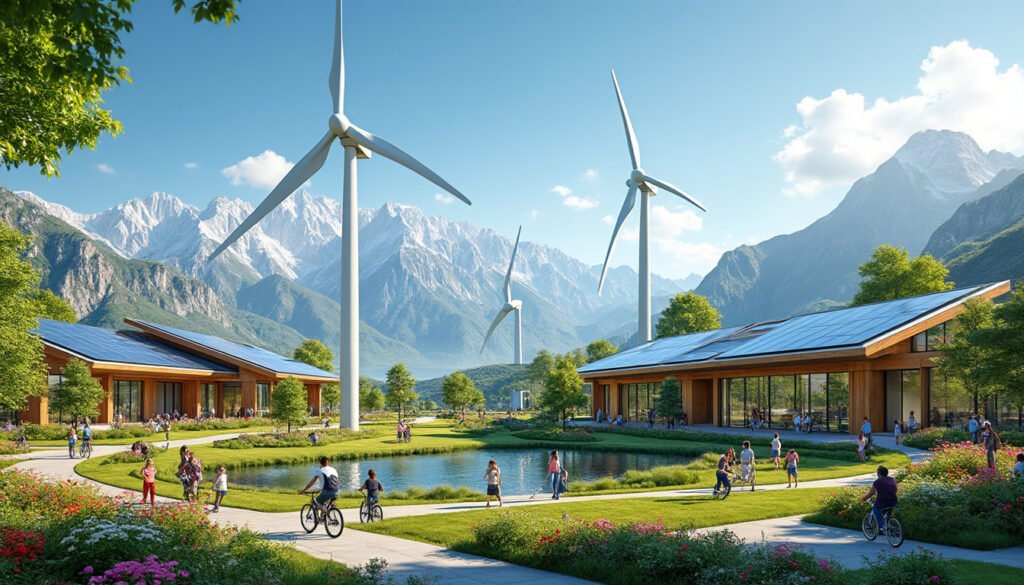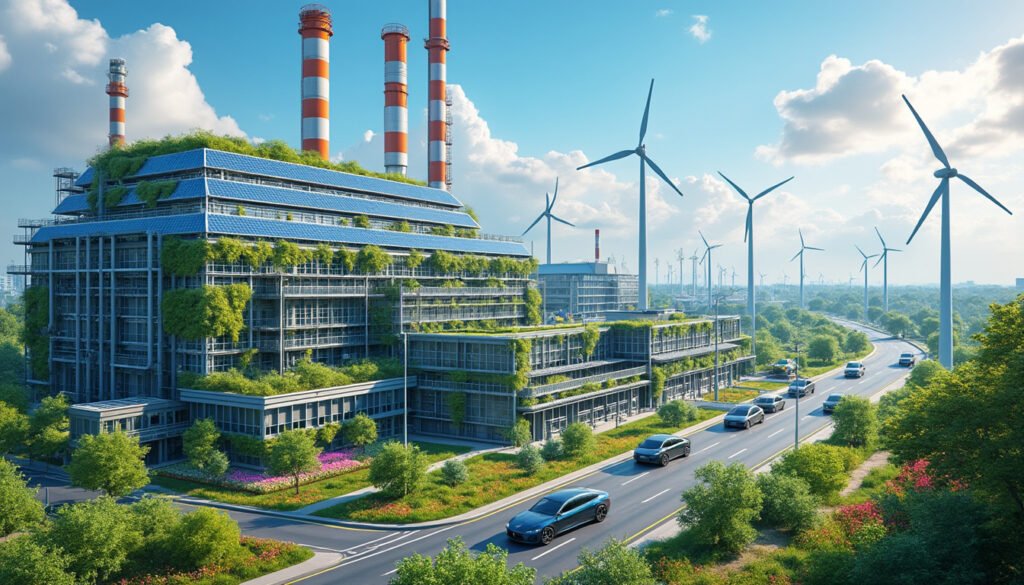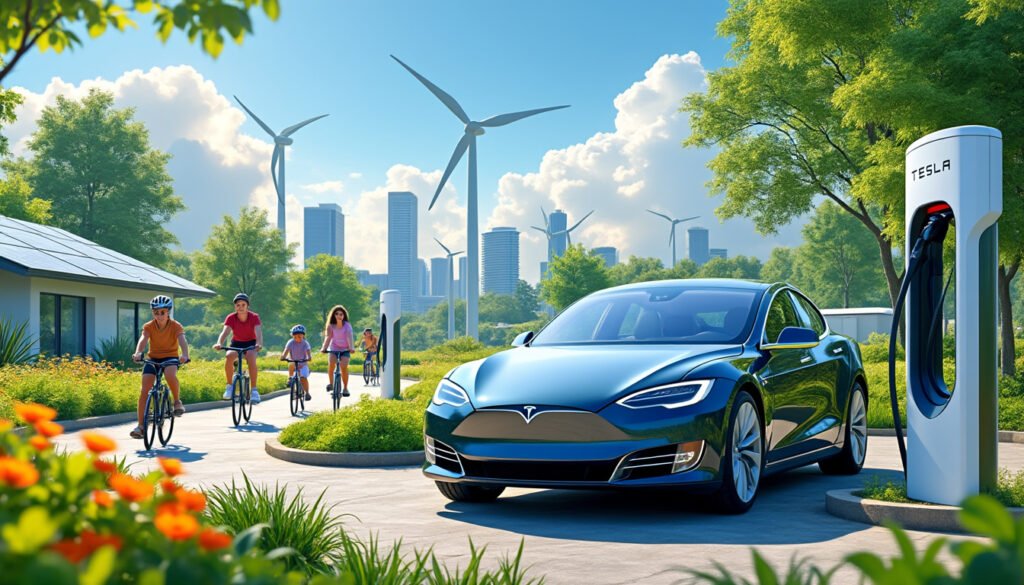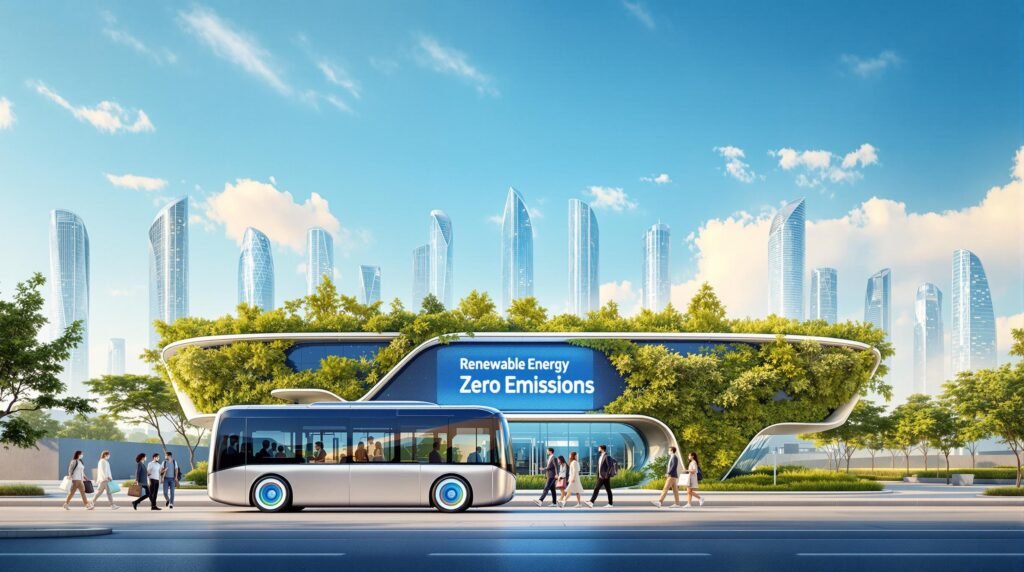The imperative of our time is to transition towards a more sustainable future that aligns with environmental integrity and socio-economic progress. The pressing challenges associated with climate change and rising energy demands underscore the need for urgent action. Without a comprehensive approach to decarbonization, societies could face grave environmental consequences, leading to disruptions in ecosystems and human life.
As governments and businesses increasingly recognize the duty toward environmental stewardship, a paradigm shift is underway. The commitment to decarbonization is becoming essential, showcasing innovative solutions that bridge the gap between economic development and environmental sustainability.
Significant steps are being taken globally to utilize technologies promoting decarbonization. Companies and countries are investing heavily in renewable energy technologies, green practices, and sustainability initiatives.

Understanding Decarbonization
Defining Decarbonization and Its Importance
Decarbonization refers to the process of reducing carbon dioxide emissions produced by human activities, particularly from energy generation and industrial processes. This is crucial in mitigating climate change, as greenhouse gas emissions are a primary contributor to global warming.
Achieving a decarbonized economy entails transitioning from fossil fuels to renewable energy sources such as wind, solar, and hydroelectric power. This shift not only diminishes the reliance on non-renewable resources but also catalyzes technological innovations that drive economic growth.
Impacts of Carbon Emissions
The significance of addressing carbon emissions cannot be overstated. Rising temperatures, melting ice caps, and extreme weather events epitomize the consequences of climate change, affecting ecosystems and human populations globally. Economic instability and health crises can also arise from unchecked emissions.
Key Impacts of Carbon Emissions:
- Increased frequency of natural disasters.
- Degradation of air and water quality.
- Impact on biodiversity and ecosystems.
- Threats to food security and public health.
Decarbonization Technologies
Technological advancement is at the core of the decarbonization strategy. Innovation in various sectors can help facilitate the transition to a low-carbon economy. Companies like Tesla, Siemens, and Ørsted are leading the charge in designing technologies and solutions that minimize carbon footprints.
Technologies such as carbon capture and storage (CCS), renewable energy generation, and energy efficiency improvements are integral in this transition. By investing in these technologies, countries are not only contributing to global sustainability but also driving economic opportunities—creating jobs in green sectors.
| Technology | Description | Companies Involved |
|---|---|---|
| Carbon Capture and Storage (CCS) | Processes that capture CO2 emissions from sources like power plants and store it underground. | Siemens, Schneider Electric |
| Renewable Energy | Energy generated from natural processes that are continuously replenished. | Tesla, NextEra Energy, Vestas |
| Energy Efficiency | Improvements aimed at reducing energy consumption through technology and behavior. | DHL, Unilever, Patagonia |
The Role of Policy in Driving Decarbonization
Legislation and International Agreements
Effective policies and international collaboration are crucial in the fight against climate change. Agreements like the Paris Agreement serve as a framework for countries to commit to reducing their carbon emissions and transitioning to sustainable energy sources.
The existence of clear laws that mandate carbon reduction can accelerate the decarbonization process by providing regulations that drive innovation while pushing industries to adopt cleaner practices. Countries such as Azerbaijan are already establishing state agencies focused on renewable energy—demonstrating the importance of governance in this transition.
Incentives for Sustainable Practices
Encouraging sustainable practices through financial incentives is beneficial for both governments and businesses. Subsidies for renewable energy projects, tax rebates for energy-efficient upgrades, and grants for research in decarbonization technologies stimulate investment in sustainability initiatives.
Businesses that embrace sustainable practices often find themselves at a competitive advantage, opening new markets while appealing to environmentally conscious consumers.
Collaboration and Global Initiatives
Collaboration among nations and sectors presents a unique opportunity to develop innovative solutions for global decarbonization. Multi-national companies like Beyond Meat and Patagonia are leveraging partnerships and initiatives to reduce their carbon footprints, showing that collective efforts can yield substantial results.
Global cooperation enhances the sharing of knowledge and technologies. Events such as the United Nations Climate Change Conference facilitate dialogues on best practices in sustainability.
The Economic Benefits of Decarbonization
Job Creation in Green Industries
Transitioning to a low-carbon economy will also yield economic benefits, notably job creation. As renewable energy sectors grow, new job opportunities arise not only in technology development but also in manufacturing, installation, and maintenance. Companies like Ørsted and NextEra Energy emphasize the potential of green jobs to revitalize local economies.
Impact on Local Economies
In many regions, investment in renewable energy projects has led to economic revitalization. This is particularly crucial for communities that have historically relied on fossil fuel industries. Investments in green technologies help diversify local economies by attracting new industries and enhancing public infrastructure.
Long-term Sustainability and Profitability
Decarbonization is not only beneficial for the environment; it also makes economic sense. Companies implementing sustainable practices often report increased efficiencies, reduced costs, and enhanced corporate reputations. This newfound focus on sustainability captures consumer loyalty and can lead to greater market share for businesses committed to environmental stewardship.
Challenges in Achieving Decarbonization
Infrastructure and Investment Gaps
Despite the growth in technology and initiatives, significant challenges remain. The lack of adequate infrastructure to support a green transition poses a substantial barrier; further investments are needed to expand renewable energy capabilities, such as upgrading power grids to handle decentralized energy sources.
Legal and Regulatory Framework Issues
Countries may face difficulties in establishing comprehensive legal frameworks that facilitate decarbonization. Inconsistent regulations can hamper business growth and innovation, leading to a disjointed approach towards sustainability.
Education and Public Awareness
The broad success of decarbonization efforts hinges on public awareness and education. Communities must understand the importance of sustainability and actively engage in practices that support a greener future. Corporate responsibility initiatives can play an essential role in this process, emphasizing the benefits of engaging with sustainable practices.
Global Perspectives on Decarbonization Initiatives
Case Studies of Successful Decarbonization
Countries and businesses across the globe are making strides in decarbonization efforts. Notably, businesses like Unilever and Schneider Electric are exemplary in their commitment to reducing carbon emissions across supply chains.
Comparative Analysis of Different Regions
Every region has its unique challenges and opportunities when it comes to decarbonization. While some countries might excel in specific technologies, others may struggle with resource allocation or regulatory frameworks. Understanding these disparities can encourage tailored approaches to sustainability.
The Future of Global Decarbonization
Looking ahead, the need for innovative solutions and collaborative approaches is vital. Industry leaders emphasize that staying ahead in the decarbonization race requires constant adaptation and evolution of strategies in response to emerging technologies and changing market dynamics.
Across sectors, the movement towards a decarbonized future is visibly gaining momentum, spotlighting companies committed to driving sustainability. Together, these efforts reflect the collective responsibility to safeguard the planet for future generations. By embracing decarbonization, societies can navigate the challenges of today while securing a sustainable tomorrow.





